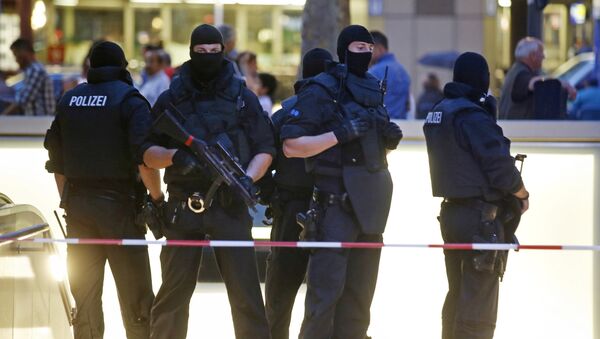The expert explained that Turkish President Erdogan is eager to clean up the US infrastructure in his country and does not want Germany, a US ally, to prevent him from doing it.
The US, in turn, is concerned with changes in Ankara’s geopolitical strategy, specifically its U-turn towards Russia, Egypt, Iran and Germany.
“Terrorism is always a geopolitical category,” Galiashevich notes, adding that those who deny the hefty role that Western intelligence plays in it, have incorrectly understood the mere phenomenon of terrorism.
The expert explains that the countries attacked by international terrorism can’t simply disregard the context of security and defense: the powerful movement of NATO military groups, deployment of additional battalions to certain countries – Poland, Lithuania, Latvia and Estonia, and the considerable revival of missile defense in European countries constitute attempts to encircle Russia and provoke larger-scale conflicts.
Now it is Germany’s turn, the expert says, as it was once the turn of France and Belgium.
The attacks in Germany will continue, he forecasts, and will be even more serious. It will continue throughout Western Europe, he suggests, and the countries of the Western Balkans won’t be spared either.
In order to prevent future attacks, Dzevad Galiashevich says that the authorities first need to eliminate all the factors which could facilitate them.
The basic weakness is, he says, is the safety control system within the EU. The European countries, he says, have sacrificed their own security for the sake of common safety. The member states have reduced their concepts of national security to nothing.
The respective agencies lost any interest in exchanging information with those which are now pursuing other interests in politics and security, he says.
“You cannot defend your country if your security services do not have strict and clearly-defined boundaries for their work, or if you legislation insufficiently specifies the problems,” Galiashevich says.
A member state can’t rely on NATO alone for its security and expect the alliance to provide for its defense, the expert says. Nor can a country rely only on the security services of its NATO partners, if they pursue different geopolitical interests.
Speaking about terrorism, he notes, one should keep in mind the interests of transnational and transcontinental organizations, which do not choose the targets when attacking vulnerable and exposed territories.
Terrorism, he stresses, is a global threat and should be addressed by the United Nations.





